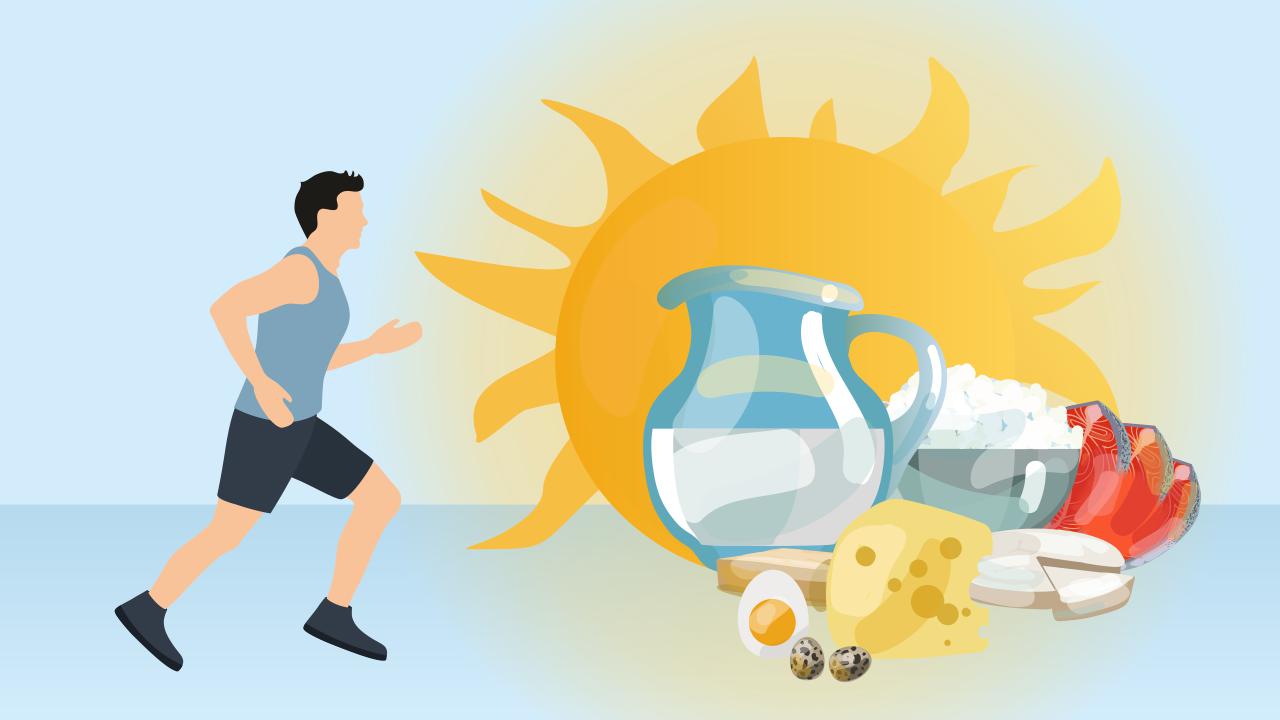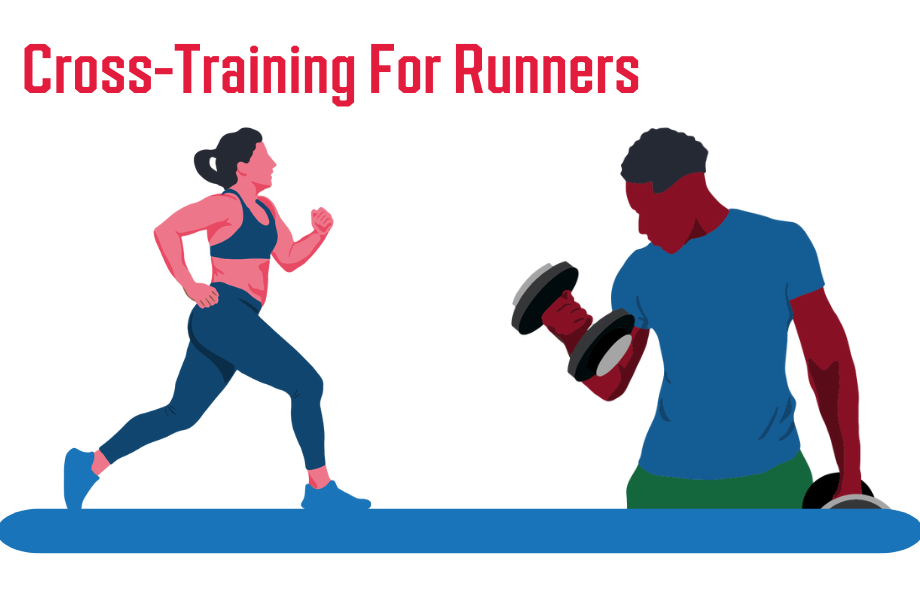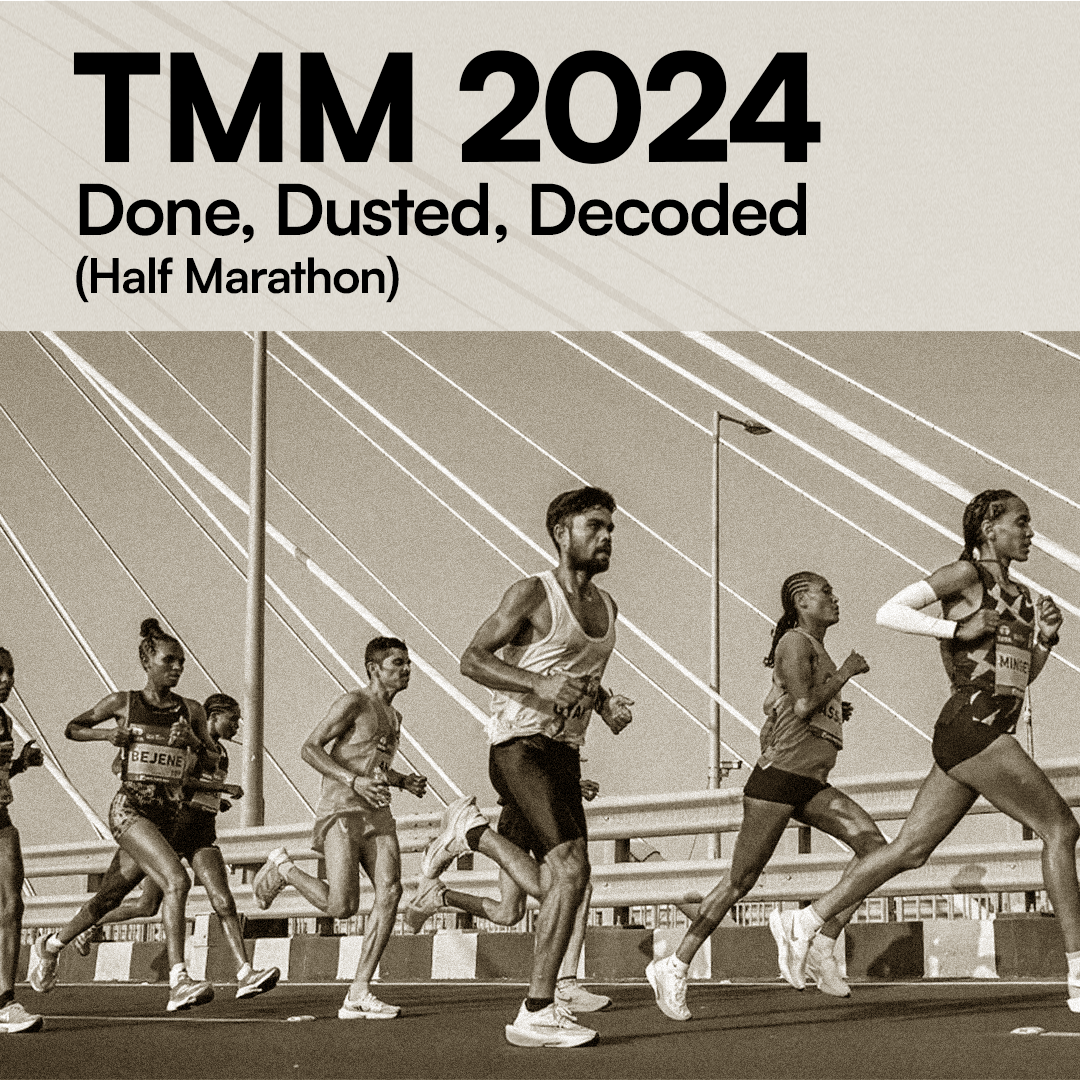
Why Is Vitamin D Important for Runners?

Vitamin D is a steroid hormone and micronutrient that has many biological functions in the body. Beyond its well-known role in bone turnover, it supports a wide range of cellular processes and is linked to immune health, inflammation, muscle function, brain, and nervous system activity. All these offerings make it an extremely important vitamin for runners.
Vitamin D allows the absorption of calcium from the intestines and maintains blood levels of calcium and phosphorus, two essential minerals for building bones. This vitamin for runners is also indispensable for remodeling bones, a process involving the removal of old bone tissue and its replacement with new bone tissue.
Also read: Does Running Help Build Bone Strength As You Age?
The Recommended Daily Allowance (RDA) for vitamin D is as follows:
| Infants up to 12 months | 400 IU |
| Children and adults aged between 1 to 70 | 600 IU |
| Older adults >70 years) | 800 IU |
It is difficult to obtain vitamin D in the diet as only a limited number of foods, such as fortified milk, cereals, and fatty fish like salmon, mackerel, and sardine contain appreciable amounts. You can identify this by reading the nutrition labels and checking the percentage of % Daily Value (DV) it meets. For instance, mackerel contains 643 IU per 100 g or 107% of the DV.
Sun is the main source of vitamin D. After exposure to direct sunlight, specifically ultraviolet B (UVB) radiation, a chemical in the skin converts into an active form of vitamin D called calciferol. Factors like the time of day, season, location, and skin pigmentation influence the amount of vitamin D produced by this process.
Here, we explain the significance of this vitamin for runners and explore the effects of the vitamin D deficiency.
Why do runners need vitamin D?
There are many reasons why vitamin D is important for runners.
Firstly, runners are exposed to repetitive impact forces on their bones, especially of the lower limbs, and these can eventually give rise to stress fractures. These painful injuries can be completely debilitating, depending on the severity of the fracture, and can cause a great deal of frustration and loss of training volume.
Vitamin D also plays key roles in muscle function, cell growth, and protein synthesis (muscle-building), controlling up to 2,000 genes involved in these processes. So if you are a runner, it is necessary to consume adequate vitamin D to support health, performance, and training adaptations.
Consequences of vitamin D deficiency in runners
It has been estimated that around 1 billion people worldwide are vitamin D-deficient mainly due to factors like a lack of exposure to direct sunlight and inadequate dietary intake. This is true for India as well, where around 70% of athletes were reported to be vitamin D-deficient according to a Chandigarh-based study.
The effects of vitamin D deficiency in runners are widespread and can hinder performance, health, and recovery. A study of male and female endurance runners found that 42% had insufficient vitamin D status according to blood serum tests (<32 ng/mL), and 11% were deficient (<20 ng/mL).
Vitamin D deficiency in runners can lead to low bone mineral density and increase the risk of developing stress fractures. It may also place the athlete at an increased risk of respiratory infections, inflammation, and muscle injuries. Research shows that in vitamin D-deficient UK-based athletes, musculoskeletal performance is impaired, but supplementation may rescue these performance decrements to the same level as seen in athletes with optimal vitamin D concentrations.
How to determine vitamin D deficiency in athletes
If an athlete does not get adequate sunlight daily, then it is advisable to check their serum vitamin D levels regularly. Blood tests are the only sure-shot way to be confident of your vitamin D status, and you should take them under a doctor’s supervision.
What is the best vitamin D supplement strategy for runners?
Addressing suboptimal vitamin D intake may help improve athletic performance, health, and wellbeing. The potential for vitamin D toxicity is rare, so supplementation can be prescribed aggressively in athletes with deficient serum levels. Vitamin D3 is the preferred vitamin D supplement for runners as it is more effective than the D2 variant, and you can obtain it in preparations up to 10,000 IU per tablet.
Also read: How Do Runners Benefit from Supplements
An established supplementation regime for deficient individuals is to consume 1,000 IU of vitamin D3 daily for eight weeks, and later obtain a blood serum measurement and dose accordingly. In the event of severe deficiency, a one-off bolus dose of 250,000 IU can rapidly increase blood levels, but this effect drops off after 90 days. So, it is essential to follow a long-term and consistent supplementation plan to get adequate intake of vitamin D under a medical professional’s guidance.
References
1. Williamson E. Nutritional implications for ultra-endurance walking and running events. Extrem Physiol Med 2016; 5: 13.
2. Vitamin D. MayoClinic. https://www.mayoclinic.org/drugs-supplements-vitamin-d/art-20363792 (accessed Nov 23, 2021).
3. Gupta R, Bohat V, Kapoor A, et al. High Prevalence of Vitamin D Deficiency among North Indian Athletes. Indian J Community Med 2021; 46: 559-61.
4. Plum LA and DeLuca HF. The Functional Metabolism and Molecular Biology of Vitamin D Action. Clin Rev Bone Miner Metab 2009; 7: 20-41.
5. Angeline ME, Gee AO, Shindle M, et al. The effects of vitamin D deficiency in athletes. Am J Sports Med 2013; 41: 461-64.
6. de la Puente YM, Collado YL, Ciudad CMJ, et al. Role of Vitamin D in Athletes and Their Performance: Current Concepts and New Trends. Nutrients 2020; 12: 579.
7. Knechtle B, Jastrzębski Z, Hill L, et al. Vitamin D and Stress Fractures in Sport: Preventive and Therapeutic Measures- A Narrative Review. Medicina Kaunas 2021; 57: 223.
8. Close GL, Russell J, Cobley JN, et al. Assessment of vitamin D concentration in non-supplemented professional athletes and healthy adults during the winter months in the UK: implications for skeletal muscle function. J Sports Sci 2013; 31: 344-53.
9. Willis KS, Smith DT, Broughton KS, et al. Vitamin D status and biomarkers of inflammation in runners. Open Access J Sports Med 2012; 3: 35-42.
10. Kearns MD, Binongo JN, Watson D, et al. The effect of a single, large bolus of vitamin D in healthy adults over the winter and following year: a randomized, double-blind, placebo-controlled trial. Eur J Clin Nutr 2015; 69: 193-97.













